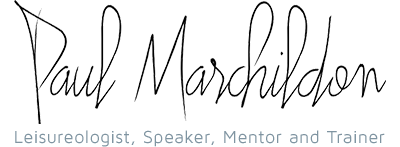Are You Using Flow Experience to Get Remarkable Results in the Workplace?

Have you ever seen a child so intently focused on coloring a picture or building a model out of play-dough that it seems as if nothing else in the world exists? It kind of makes you jealous as you watch, doesn’t it? That child is so absorbed that nothing in the world could be any more important or more fulfilling than what he or she is doing in that moment. This is what we identify as a “flow experience.” Kids can get there more easily, it seems, because they’re willing to let themselves go. What if we are willing to do the same? What if we could go with the flow?
Mihaly Csikszentmihalyi, who developed the concept, used the term “flow experience” to describe those moments when you are completely and totally absorbed in an activity. You have forgotten, just like that child with his drawing, about the rest of the world. Achieving a flow experience is not the same thing as being happy. Stopping for a moment and feeling the sun on your face is happiness; flow on the other hand is very different:
- You are engaged in an activity that provides an optimal level of challenge. It is not so easy that it becomes mindless, and it is not so difficult that it becomes frustrating.
- There are clear goals involved.
- The activity engages your skills fully.
- You are given immediate feedback (whether external or in the form of being able to complete next steps because of the success of prior steps).
- You are in control.
- Actions become effortless. You’re in the “zone.”
- There is a sense of timelessness. You lose track of how much time you spend on an activity.
- You lose self-consciousness. You are not aware of what’s going on around you.
After you come back to yourself, as it were, you might feel exhilarated, happy, accomplished. You might feel as if you’ve “lost” an hour or two because time has simply disappeared. At the same time, you have that completed project, the finished game, the new masterpiece, to show for your experience. “Moments such as these,” writes Csikszentmihalyi, “provide flashes of intense living against the dull background of everyday life.”
Looking for Work Life Integration?
Paul Marchildon, an experienced Leisureologist, can work with you and your team to increase productivity by incorporating leisure into the workplace.
In a survey of nearly 6,500 participants, researchers asked, “How often do you experience flow?” Twenty-three percent answered, “Often,” 40 percent “Sometimes,” 25 percent “Rarely,” and 12 percent “Never or Don’t Know.” None of us are in a flow experience all day every day, but when you can allow yourself to let go and lose yourself in the moment, you can see remarkable results at work and in life. Research by Csikszentmihalyi and others suggests that flow correlates highly with happiness, wellbeing, increased concentration, high self-esteem, and better health.
This is good news for companies as Csikszentmihalyi found that there are “more occasions of flow on the job than in free time.” These flashes of intense living can create more productive, engaged employees and more successful companies. Encourage them; celebrate them; have more of them!
